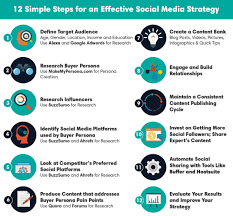Successful Marketing Strategies Examples
In today’s competitive business landscape, successful marketing strategies play a crucial role in helping companies stand out and attract customers. Let’s explore some examples of businesses that have implemented effective marketing strategies to achieve their goals:
Apple
Apple is known for its innovative products and iconic marketing campaigns. Their strategy focuses on creating a strong brand image, building anticipation around product launches, and fostering customer loyalty through exceptional user experience.
Nike
Nike’s “Just Do It” campaign is a classic example of successful marketing. By tapping into the emotions of athletes and fitness enthusiasts, Nike has created a powerful brand message that resonates with its target audience and sets it apart from competitors.
Coca-Cola
Coca-Cola’s marketing strategy revolves around storytelling and emotional connection. Through campaigns that evoke happiness, togetherness, and nostalgia, Coca-Cola has managed to create a timeless brand that transcends generations.
Airbnb
Airbnb’s success can be attributed to its user-generated content strategy. By encouraging customers to share their travel experiences and stay photos, Airbnb has built trust and credibility among its community, leading to increased bookings and brand loyalty.
These examples demonstrate the power of strategic marketing in driving business growth and building lasting relationships with customers. By understanding your target audience, crafting compelling messages, and leveraging innovative channels, your business can also achieve success in the competitive marketplace.
Six Essential Tips for Crafting Successful Marketing Strategies
- Understand your target audience thoroughly
- Create a strong brand identity
- Utilize multiple marketing channels effectively
- Engage with your customers through social media
- Monitor and analyse your marketing efforts regularly
- Adapt and evolve your strategies based on feedback and results
Understand your target audience thoroughly
Understanding your target audience thoroughly is a fundamental aspect of successful marketing strategies. By delving deep into the demographics, behaviours, preferences, and needs of your audience, you can tailor your marketing efforts to resonate with them effectively. This knowledge enables you to create targeted campaigns that speak directly to the desires and pain points of your potential customers, increasing the likelihood of engagement and conversion. Ultimately, by prioritising a deep understanding of your target audience, you can craft compelling messages and deliver valuable solutions that establish a strong connection and drive success in your marketing endeavours.
Create a strong brand identity
Creating a strong brand identity is essential for successful marketing strategies. A distinctive brand identity sets a company apart from its competitors and helps build recognition and trust among customers. By defining key brand elements such as logos, colours, tone of voice, and values, businesses can establish a cohesive and memorable brand image that resonates with their target audience. Consistency in branding across all marketing channels reinforces brand recognition and loyalty, ultimately driving customer engagement and long-term success.
Utilize multiple marketing channels effectively
To succeed in today’s competitive market, it is essential to utilise multiple marketing channels effectively. By diversifying your marketing efforts across various platforms such as social media, email campaigns, search engine optimisation (SEO), and traditional advertising, you can reach a wider audience and engage with customers at different touchpoints. This approach not only increases brand visibility but also allows you to tailor your message to suit the preferences of different target demographics. By strategically combining online and offline channels, businesses can create a cohesive marketing strategy that maximises reach and impact, ultimately driving growth and success.
Engage with your customers through social media
Engaging with your customers through social media is a vital aspect of successful marketing strategies in today’s digital age. By actively interacting with your audience on platforms like Facebook, Instagram, Twitter, and LinkedIn, you can build relationships, gather feedback, and create a sense of community around your brand. Responding to comments, sharing valuable content, running polls or contests, and showcasing user-generated content are just some of the ways to foster meaningful connections with your customers. Through consistent and authentic engagement on social media, businesses can enhance brand loyalty, increase brand awareness, and drive customer satisfaction.
Monitor and analyse your marketing efforts regularly
Monitoring and analysing your marketing efforts regularly is a crucial aspect of successful marketing strategies. By tracking key performance indicators, such as website traffic, conversion rates, social media engagement, and campaign ROI, businesses can gain valuable insights into what is working well and where adjustments are needed. This data-driven approach allows companies to make informed decisions, optimise their marketing tactics, and ultimately improve their overall effectiveness in reaching and engaging with their target audience. Consistent monitoring and analysis ensure that businesses stay agile and responsive in today’s fast-paced digital landscape, enabling them to adapt quickly to changing market trends and consumer behaviours.
Adapt and evolve your strategies based on feedback and results
In the realm of successful marketing strategies, a key tip is to adapt and evolve your approaches based on feedback and results. By actively listening to customer feedback, analysing data metrics, and monitoring campaign performance, businesses can gain valuable insights into what is resonating with their audience and what needs improvement. This iterative process of refining strategies allows companies to stay agile, responsive, and relevant in an ever-changing market landscape. Embracing feedback and being willing to make adjustments based on results can lead to more effective marketing initiatives that drive engagement, conversions, and long-term success.
